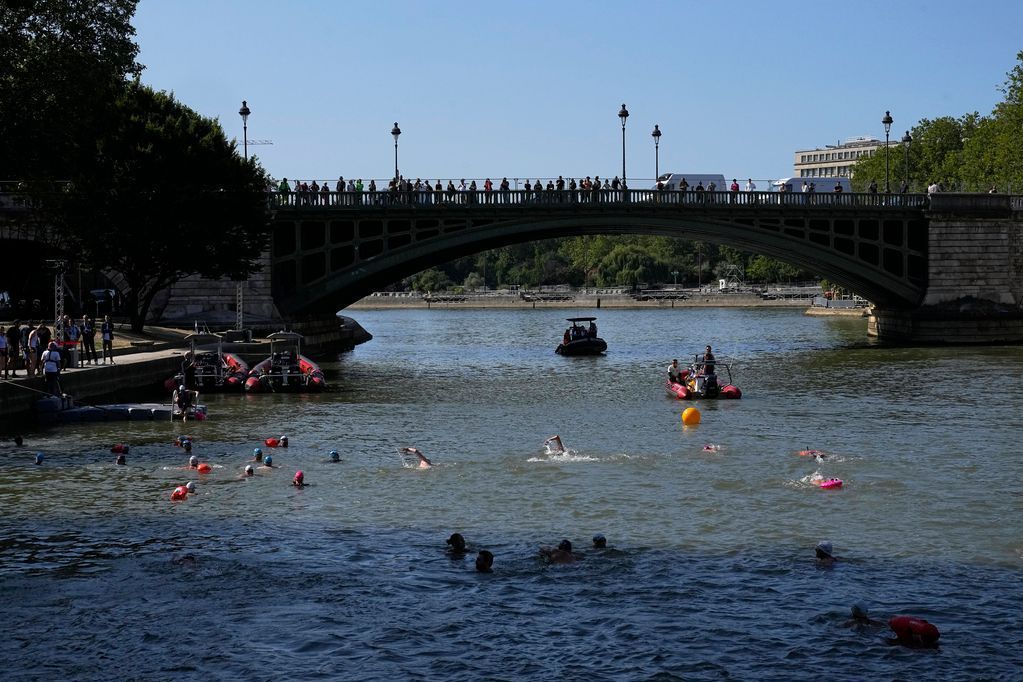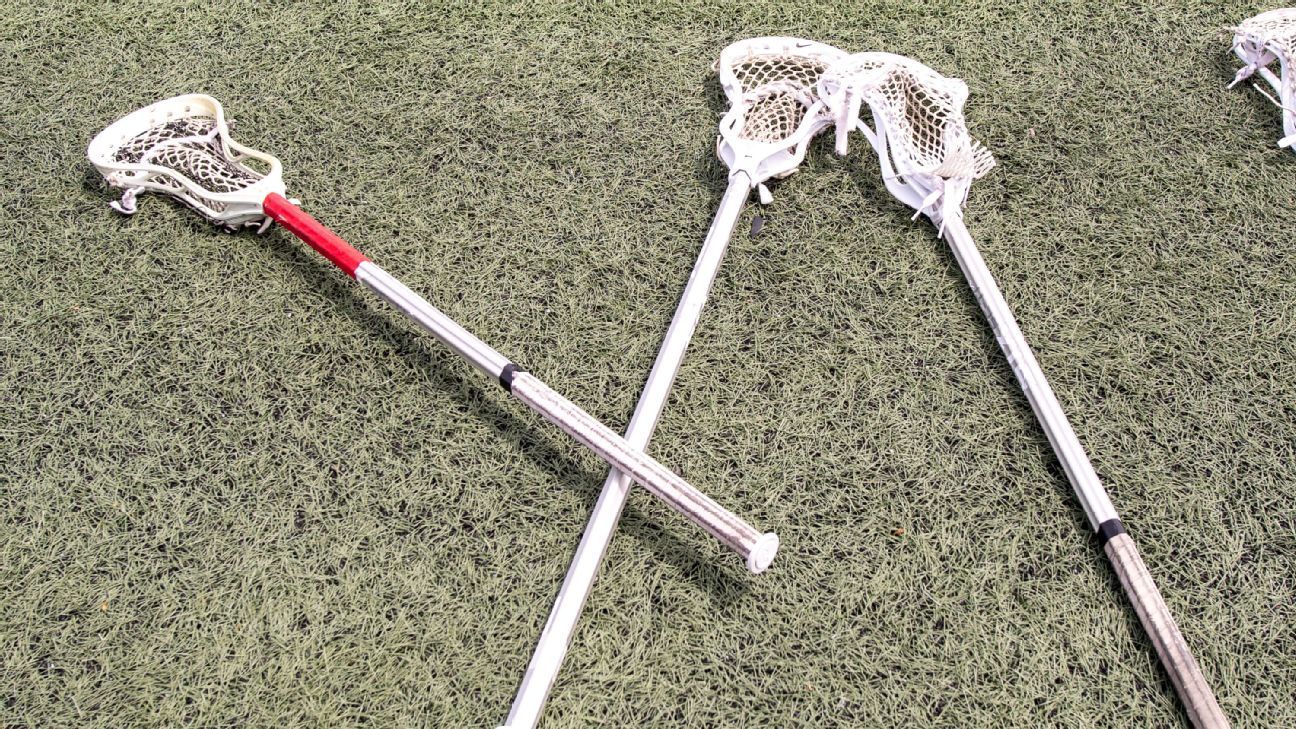PARIS — Three German swimmers fell ill after competing in open water races at the Paris Games, though it was not immediately clear whether the long-polluted Seine River was to blame for their illnesses.
The swimmers were not identified in a statement released Saturday by the German Olympic Sports Confederation, although Leonie Beck took to social media to reveal their condition.
Beck, who finished ninth in the 10-kilometer race, posted a photo of herself on Instagram giving a thumbs up but looking sick.
“Yesterday I vomited 9 times + diarrhea,” he posted, before adding sarcastically: “The water quality in the Seine is approved,” accompanied by a check mark.
The German committee said in its statement that three of its athletes had fallen ill.
“Two German open water swimmers were treated on Friday as outpatients for nausea, vomiting and diarrhoea. They have been feeling much better since this morning,” the statement reads. “Another swimmer with similar symptoms is being treated by the German team doctors.”
The other German swimmer in the women's open water race was Leonie Maertens, who placed 22nd out of 24 women.
Germany also had two swimmers in the men's event: silver medallist Oliver Klemet and eighth-place finisher Florian Wellbrock. It was not disclosed which of them was receiving treatment.
Paris organisers and World Aquatics, the governing body for open water swimming, released test figures showing water quality was within accepted limits considered safe. There was a back-up plan to move marathon swimming to the Olympic rowing and canoeing basin if tests showed levels of E. coli and other forms of bacteria exceeded those limits.
Concerns about the Seine, where swimming had been banned for more than a century due to bacteria-laden waters, came to light after Paris organisers announced plans to hold the triathlon's open water and swimming events on the iconic river that runs through the heart of the French capital.
Despite a massive and expensive cleaning project, some readings showed unacceptable levels of disease-causing bacteria, leading to changes to the triathlon schedule and the cancellation of one of two planned open water practice sessions ahead of the men's and women's 10km races.
Several athletes fell ill after the triathlon, but it was unclear whether any of their conditions were caused by swimming in the Seine.
Although Beck clearly believes his illness was caused by the river, the German Olympic committee said tests showed it was “feasible” to go ahead with both races.
In total, 53 swimmers (29 men and 24 women) competed in the open water races. Most said the cleanliness of the water was not an issue, and women's gold medalist Sharon van Rouwendaal of the Netherlands said she even took a few swigs from the river when she felt thirsty during the race.
“It was cold,” he said. “It was nice.”
Ireland’s Daniel Wiffen, a gold medalist in the 800-meter freestyle swim who was competing in his first open-water race, played down concerns about the cleanliness of the waterway. He said readings he saw before the men’s race showed less E. coli in the Seine than would normally be found in a swimming pool.
The Paris organising committee issued a statement saying it had “heard reports of the athlete's illness and we wish him a speedy recovery.”
“At this time, we are not aware of any established link between the illness and the water quality of the Seine,” the statement said. “The water quality on the day of the marathon was considered 'very good' or 'excellent' at all four test points and within the limits set by World Aquatics.”
World Aquatics has left comment pending for Paris organisers.












